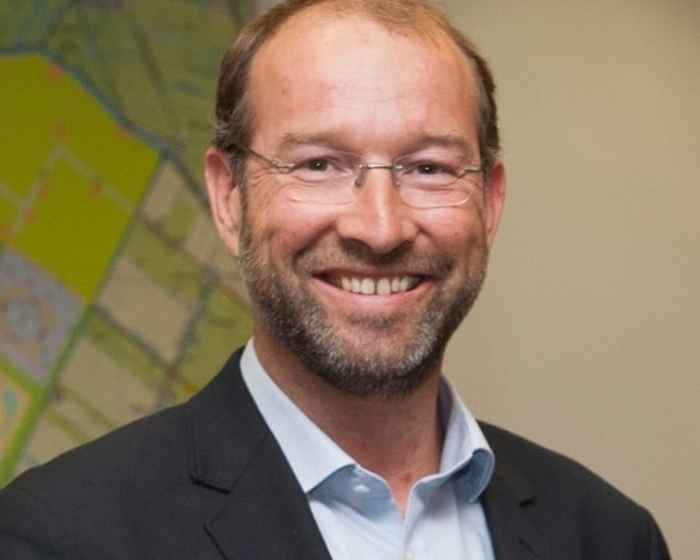Berent Daan MSc

Berent Daan MSc first started programming as early as the 1980s, back when you needed a Commodore 64 to do this at home. Wanting to make further use of his affinity for programming and math, he studied Math and Information Science at the Delft University of Technology, and specialised in distributive computing and artificial intelligence. One of his main research topics was developing a system that could automatically recognise fish species on a conveyor-belt, making use of neural network applications.
After graduating university, Daan joined Lost Boys Interactive, a small business in Amsterdam. As a programmer for this company he was mostly involved with developing games for marketing purposes. Then the focus of Lost Boys shifted to the web and Daan became a technical project manager, and eventually one of the leading executives of the company. The company kept growing, becoming a business with 140 employees in Amsterdam, and opening more holdings in other European cities. While Lost Boys expanded, Daan’s function became increasingly focused on management and organisation.
In the later phases of his career he worked as the head of communication for the political party PvdA in Amsterdam, where he developed numerous innovations. Thereafter, he spent 8 years as an alderman in Purmerend, and has now gone back to his roots as the chief data scientist at the City of Amsterdam.
What qualities and personally traits does a data scientist need?
‘As a generalist you are incredibly important in data science. You are are not only interested in the technical know-how, but also in the implications of your work. You have to be able to read policy transcripts, see in the bigger picture and decide which role technology can play in the policy. You also will have to learn to work with people in a professional context. You will never work in a team in which everyone thinks alike, so learning to deal with many different types of people is essential. People from marketing, communication, software development and data science all have a role to play, and appreciating everyone’s value is important. You’ll have to find a way to make your expertise valuable to each of them.
Yet, being able to work independently is equally important. In the land of the blind, the one-eyed man is king, so you’ll often be the only one who knows the particulars of a certain system. This means you need to take initiative and responsibility; you have to sell your competence and convince your peers of your proposed methods.
Regarding Clients - they often don’t know what to ask of a data scientist, and only know the result they want to achieve. A data scientist should be able to translate their issue into a question suitable for data analysis. You need to find the right sources, understand the origin of the data, and translate the information to a format that is accessible and useful. It will not always immediately be clear what the role of data can be for a particular problem, so you will often have to figure out how data science may contribute to an issue yourself.
You will also need to be aware of the privacy concerns your clients may have. Organisations are often sceptic about the security you can provide, so you’ll have to proactively inform every stakeholder about the precautions you take and demonstrate that the data is being handled responsibly during every step of the process.
Finally, you have to create the right environment in order to work effectively. As a student, you work in a pre-determined setting, in which all the tools you need for an assignment are within reach. But when you start a project outside of the academia, you’ll need a very good understanding what kind of set-up is required for your mission to be successful.’
What do you think the future will bring the field of data science?
‘Data science is sometimes still viewed as a separate entity in a company, stuffed away in a corner of the building. This will likely change very quickly, as data scientists will become an integral and vital part of any professional work force that makes use of data-driven technology. Data scientists will be essential for the development of public policy if we wish to keep up with technological development.
Data scientists will also no longer fulfil a facilitating role, but will be involved in long term strategic decision-making. This will be some sort of an emancipation process, that the field of data science will have to make happen itself. Then, it will be one of the sexiest jobs of the coming 10 to 15 years, working on the cutting edge of technology and involved in strategic decision-making at the highest level.’